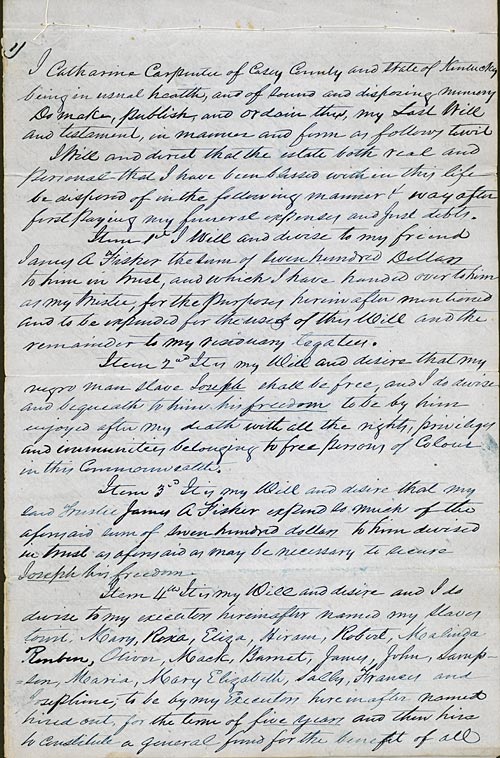By means of "an act Concerning the Separate Estates of Married Women," approved on January 10, 1868, the General Assembly stated that whenever real property has been "conveyed or devised" to a married woman "for her separate use without the intervention of a trustee and without any restriction upon the sale or conveyance thereof," she shall have the same right to "sell and convey said property" as if it had "been conveyed to her absolutely without any separate use being expressed." Her separate use "shall continue in the proceeds of such sale."

Catherine Carpenter's will, Casey County, from the Carpenter family papers, 1704-1995, Kentucky Historical Society Collections. Catherine Spears was born in 1760 in Rockingham County, Virginia, where her father George Spears was a prosperous slave-owning planter. Catherine was well educated along with her siblings and was also trained as a weaver. Around 1776, she married John Frye and shortly afterward migrated with the Carpenter clan and other Shenandoah Valley neighbors to Kentucky. They settled in present-day Casey County and founded Carpenters Station. After John Frye's death in the Battle of Blue Licks, Catherine married Adam Carpenter. They had ten children, in addition to two Catherine had by her first marriage. Catherine was again widowed when Adam died in 1806. She inherited 667 acres as well as a slave named Joseph, who became the supervisor of her plantation. After Adam's death, she began buying land and made income from distilling whiskey and raising cattle. After her death in 1848, the Carpenter lands and businesses were run by Catherine's son George "Red-Face" Carpenter.
